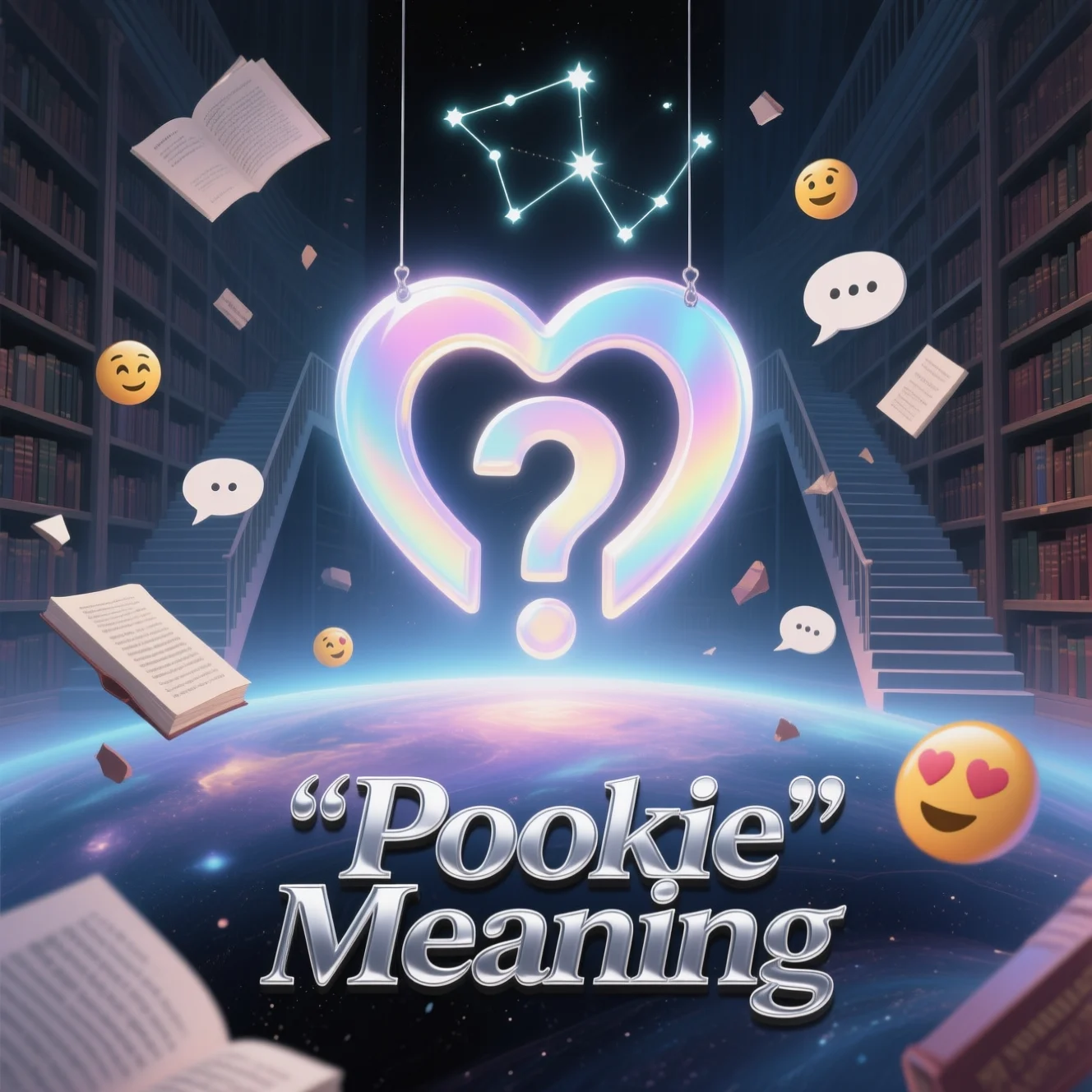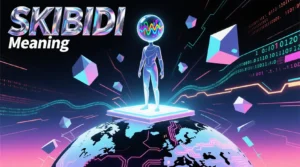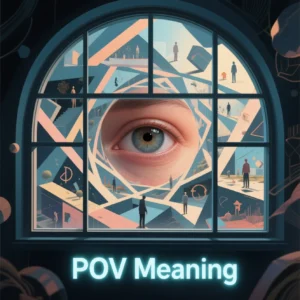Language never sits still. Every few years, new slang appears and suddenly everyone is using it—from teenagers in group chats to influencers on TikTok. One of the most charming examples in recent years is the rise of the word “Pookie.”
You’ve seen it in captions, heard it in viral videos, and maybe even caught yourself saying it to a loved one. But what does Pookie actually mean? Where did it come from? And why does it matter so much in modern communication?
This guide breaks down the Pookie meaning, origins, usage, and cultural significance, along with examples, parent-friendly explanations, and insights into how slang reflects the way language evolves.
What Does “Pookie” Mean?
At its core, Pookie is a term of endearment. People use it as a nickname for someone they care about deeply—whether that’s a romantic partner, a close friend, or even a pet.
Think of it in the same family as “baby,” “honey,” or “boo.” The difference is that Pookie carries a playful, almost childlike warmth that makes it feel extra affectionate.
- Romantic use: A partner calling their significant other “my Pookie.”
- Friendship use: Teens jokingly calling each other “Pookie” to show closeness.
- Pet name use: Owners referring to their cats or dogs as “Pookie.”
Unlike some slang, Pookie is not offensive. It’s lighthearted, sweet, and affectionate. The meaning depends on context, but it almost always communicates care, warmth, and connection.
Pookie Slang in Today’s Culture
Why did this quirky little word suddenly become so popular? The short answer: TikTok and social media.
Teenagers and Gen Z users have a habit of reviving old words and giving them new life. Pookie was once a niche nickname, but when creators began dropping it in captions, skits, and comment sections, it quickly became a viral expression.
- It shows up in relationship videos where partners call each other Pookie.
- It pops up in funny memes with sarcastic or exaggerated affection.
- It has become a universal inside joke among teens who want to sound playful.
Much like other affectionate slang terms such as bae or boo, Pookie feels modern because of the way it’s used online—even though it’s been around for decades.
TikTok & Social Media Influence
If you’ve scrolled through TikTok recently, you’ve likely seen captions like “Pookie’s looking fire tonight” or couples addressing each other with the nickname. Social platforms took what was once a private pet name and turned it into a trend.
The viral success of “Pookie” reflects how slang spreads today:
- Memes and sounds: A funny video or trending audio can push a word into mainstream use overnight.
- Influencers and couples: Certain TikTok couples and creators embraced Pookie and used it consistently, making it part of their brand.
- Hashtags and captions: Adding “Pookie” to content gave posts a playful and endearing tone, fueling even more engagement.
The result? Pookie isn’t just a nickname anymore—it’s a cultural moment.
Origin and History of “Pookie”
Slang often feels brand new, but words like Pookie have a surprisingly long history. Let’s trace its evolution:
| Time Period | How “Pookie” Was Used |
|---|---|
| Early 1900s | Believed to have roots in German pet names and English baby-talk expressions. |
| Mid-1900s | Appeared in children’s books as the name of a bunny character. Garfield’s teddy bear was also called Pooky. |
| 1980s–90s | In certain street slang contexts, Pookie was a negative reference to drug addicts or paraphernalia. |
| 2000s | Urban Dictionary popularized Pookie as a sweet, playful nickname. |
| 2020s | Revived by Gen Z and catapulted into fame through TikTok, Instagram, and meme culture. |
This history shows that while Pookie is currently enjoying viral fame, it has been part of English-language play for over a century.
How Teens Use “Pookie”
Teenagers thrive on inside jokes, nicknames, and slang. To them, calling someone Pookie isn’t just about being cute—it’s about building identity and belonging.
- In romantic relationships, it replaces “babe” or “sweetheart.”
- In friend groups, it’s a playful way to tease each other.
- In online communities, it’s used ironically to make memes more entertaining.
The flexibility of the term makes it appealing. It can be sincere, funny, or sarcastic, depending on tone.
Examples of “Pookie” in Conversations
To really understand slang, you need to see it in action. Here are some everyday examples of how “Pookie” might appear:
Romantic:
- “Goodnight, Pookie. Sweet dreams.”
- “Don’t be mad, Pookie—I’ll bring snacks.”
Friendship:
- “Pookie, let’s go grab fries after class.”
- “You really killed it today, Pookie!”
Pets:
- “Come here, little Pookie, time for your walk.”
Social Media Caption:
- “Pookie looking amazing tonight ✨”
This mix of genuine and playful usage is what makes Pookie so adaptable.
Language Evolution & Slang Trends
The rise of Pookie fits into a bigger picture of how language evolves in the digital age.
- Speed: Social media accelerates the spread of slang. A single viral post can introduce a word to millions overnight.
- Creativity: Teens remix old words into new meanings, keeping language playful.
- Cycles: What’s trendy today may fade tomorrow—only to be revived again years later.
Other viral terms like rizz (charisma) or delulu (delusional optimism) show the same pattern. Pookie joins this group of TikTok-born words that capture Gen Z humor and affection.
Parents’ Guide to Understanding “Pookie”
For parents, slang can feel like a foreign language. But when it comes to Pookie, here’s the good news: it’s harmless.
- No hidden dangers: Unlike some slang, Pookie doesn’t carry offensive or explicit meaning in mainstream teen use.
- Bridge conversations: Asking your teen what it means can open up lighthearted discussions.
- Show curiosity: Teens appreciate when adults try to understand their world without judgment.
The best approach is not control, but connection. If your teen calls their friend Pookie, it’s almost always affectionate, not concerning.
Online Safety & Monitoring Teen Slang
While Pookie itself is safe, parents should still stay aware of how teens use slang online.
- Positive slang: Words like Pookie, bae, bestie are about bonding.
- Concerning slang: Other terms may hide references to drugs, bullying, or risky behavior.
- Tools: Parental control apps can help monitor online activity, but they should be paired with trust and open dialogue.
Remember: building a safe space for communication is more effective than strict monitoring.
Pookie in Relationships
In relationships, nicknames matter. They create intimacy, laughter, and a sense of belonging.
- Couples often use Pookie as a private pet name.
- Friends might say it jokingly but still communicate closeness.
- Even pets become “Pookie” because the word feels soft and affectionate.
What makes it special is how personal yet universal it feels. Everyone can use it, but the bond it represents is unique.
Generational Differences in Language
One reason slang like Pookie can confuse adults is that language shifts quickly across generations.
- Teens use it freely, while parents may see it as silly or childish.
- In some regions, it may carry very different meanings, which adds to confusion.
- The best way to bridge the gap is through humor and curiosity.
Language is a living thing. By embracing slang instead of rejecting it, parents and adults can better connect with younger generations.
Key Takeaways
- Pookie meaning: A sweet, affectionate nickname used in relationships, friendships, and online culture.
- Origins: From German and English endearments → children’s books → Urban Dictionary → TikTok revival.
- Usage: Romantic, playful, sarcastic, and even as pet names.
- Culture: Reflects teen creativity, online virality, and identity formation.
- For parents: No cause for alarm—Pookie is a positive slang term.
Conclusion
The story of Pookie shows us how language evolves, adapts, and creates new bonds. It’s more than a silly word—it’s a snapshot of culture, affection, and identity in the digital age.
Next time you hear someone say, “I love you, Pookie,” don’t dismiss it as nonsense. See it for what it is: a modern expression of closeness, proof that even in a world of fast-changing slang, the need for warmth and connection never goes out of style.



